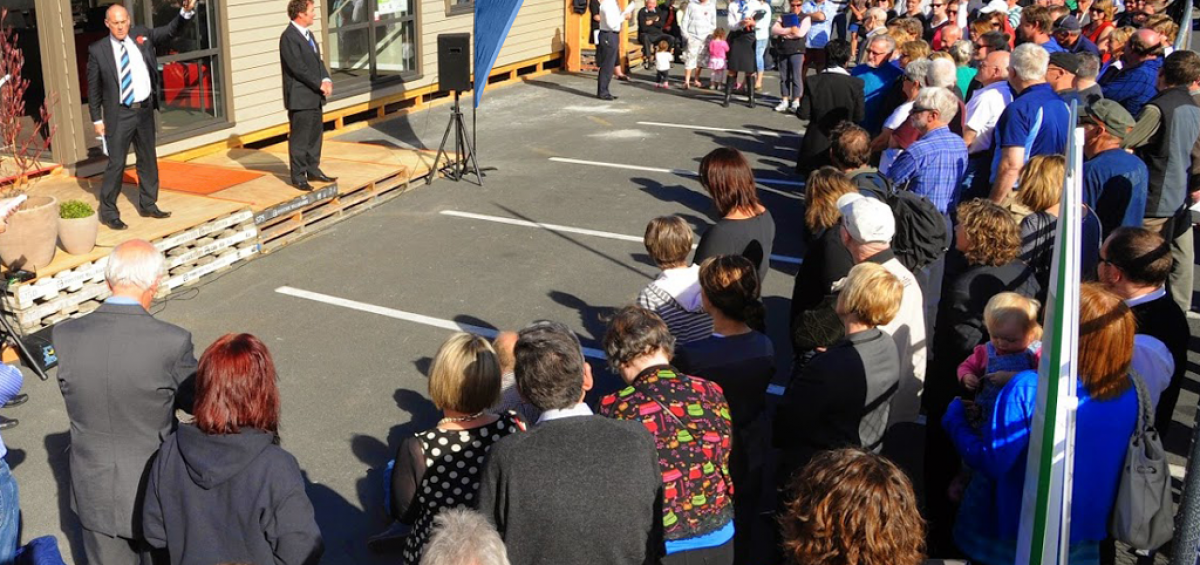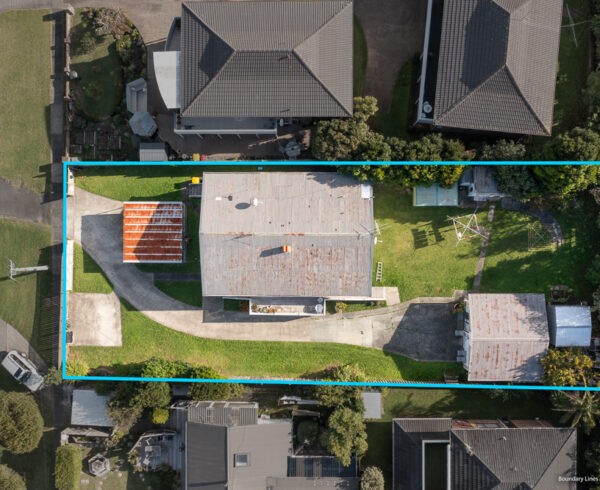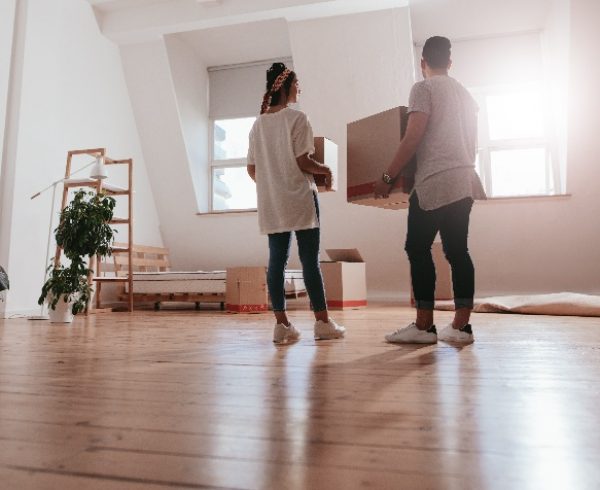In order to have yourself prepared for auction day Harcourts New Zealand CEO, Chris Kennedy believes there are three types of figures to consider before the day:
Your happy price – The figure you’d be very happy to accept.
Your ok price – The figure you’d be ok with based on the feedback you’ve received, you don’t see a win but you don’t see a loss.
Your grumpy figure – This last figure is basically the one you wouldn’t be thrilled with, but given market conditions, you’re prepared to unhappily sell at that price.
Remember, at all times during an auction, you’re in control. If a bid is high enough take it. If not, don’t. But the reason for not taking the offer needs to be greater than the reason the home is on the market in the first place.
What happens when the property sells at auction?
After the sale, it’s time to focus on the buyer. Your auctioneer should take them aside to start looking at the paperwork and get the contract signed straight-away. It’s also time to look at how the deposit is going to be paid. As the current owner, you’ll then sign the paperwork, and the sale has concluded.
What if no one registers for/turns up to the auction?
Harcourts Auctioneer, Andrew North says, in reality, this isn’t something that happens very often. It varies from country to country, but in Australia and New Zealand, an auction requires a minimum of six people to attend for an auction to legally be called.
What if nobody bids at auction?
It’s understandable that buyers might be nervous during the excitement and pressure of an auction. This is why, it’s not uncommon for an auctioneer to be met with silence when asking for an opening bid. Most people are waiting to see what others at the auction might bid. So to get the auction rolling, the auctioneer will nominate a starting bid – this is called a vendor bid, it basically indicates what price a seller is not prepared to sell for.
What if the reserve price is not reached?
In this event, your auctioneer can pause the auction and come and speak to you, the seller. They will go back to the current highest bidder, and ask if they’re prepared to increase their offer to a price at which you’re prepared to sell. If the bidder is not prepared to do that, your auctioneer will then see if you’re prepared to lower your reserve price. That’s why it’s important for you to have a price in mind that whilst you wouldn’t be entirely happy with, you are prepared to sell at. If neither of these scenarios happen, then a sale cannot occur, and your home will be, what is called ‘passed in’.
If your home has been passed in at auction because the bidding hasn’t reached your reserve price, there is no need to panic – 90 percent of the time, your property will sell within hours of the auction!
It is generally fairly easy to negotiate your way to a sale either on the day of the auction or shortly afterwards, and your Harcourts agent will usually manage the negotiation process for you!
When a property fails to sell at auction, nine out of 10 times it is sold within half an hour to the buyers who have made the highest bid. Your agent should negotiate the sale with the highest bidder until a mutually agreeable price is reached. If a mutually agreeable price cannot be reached or if the bidding was low during the auction, it may be a sign that your property is priced too high.
However if the price of the property is reasonable and it still didn’t sell on auction day, your agent will generally receive a significant amount of follow-up calls and requests for inspections early in the following week. Although you didn’t receive any worthy bids at the auction, you may receive multiple offers in the days after the auction and could end up with a significantly higher sale price than you originally expected!
Of course there are times when the market is flat and buyers aren’t out in full force, but generally if your property is priced fairly and there are buyers out there, your property will sell at auction or very soon after.
Just be calm, patient and, most importantly, relax.







Recent Comments